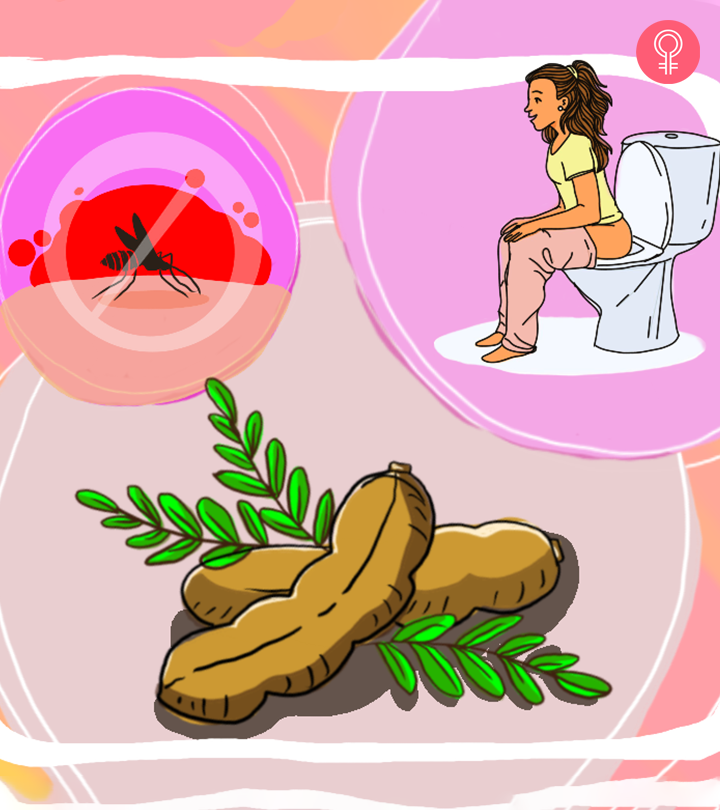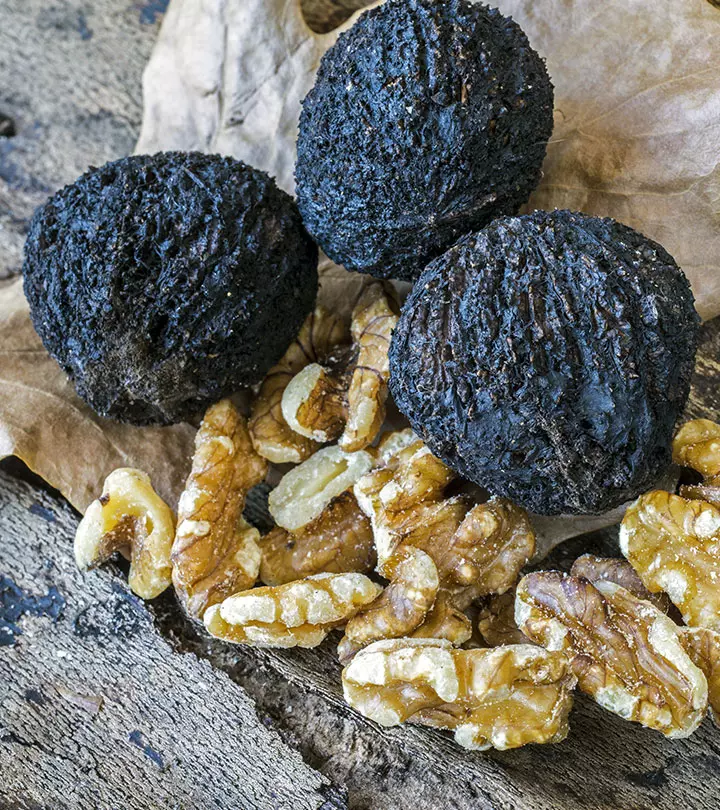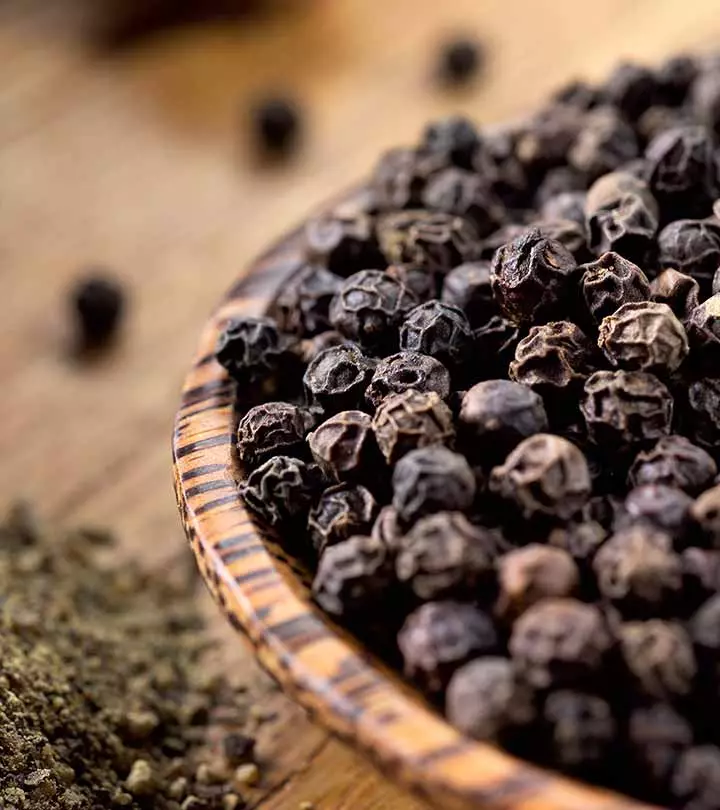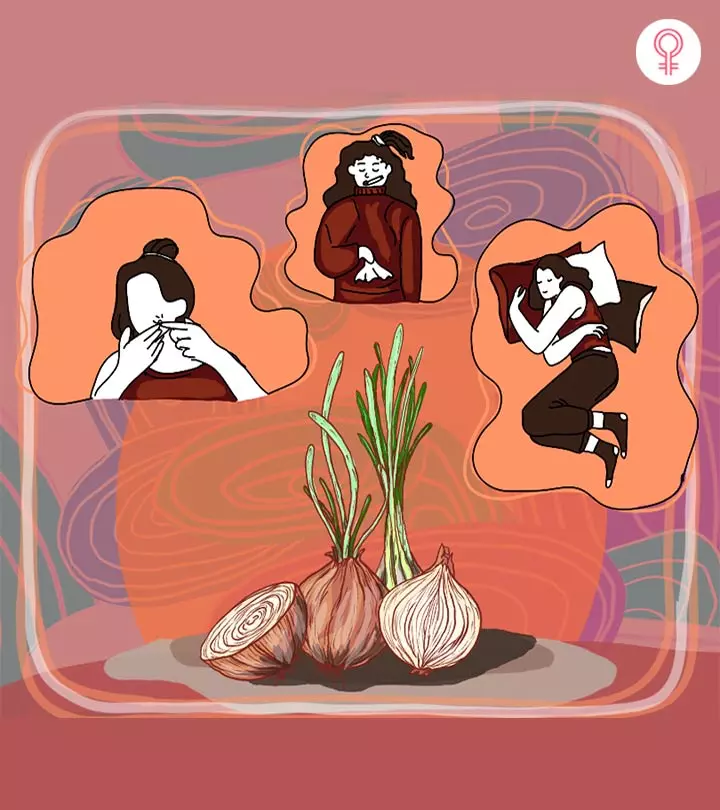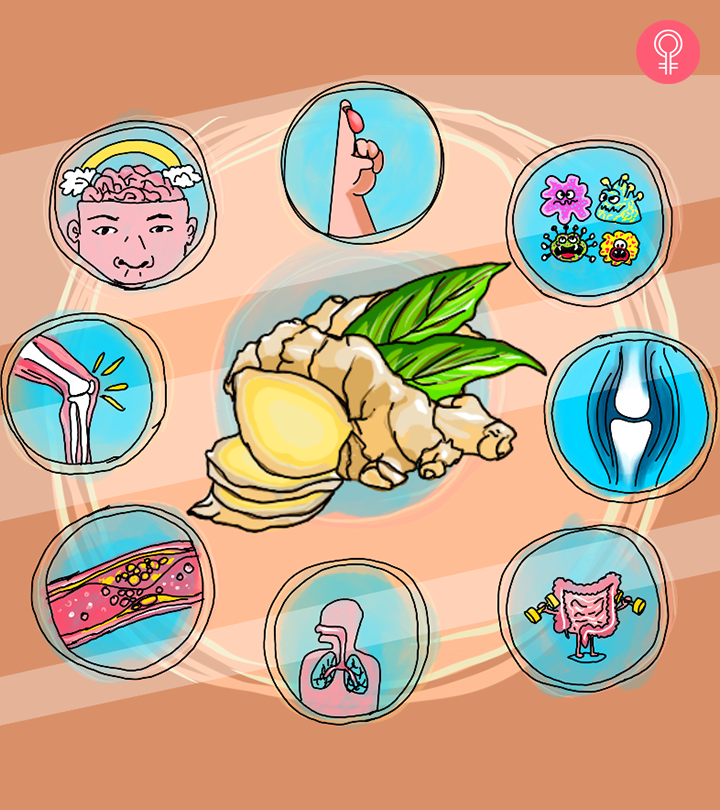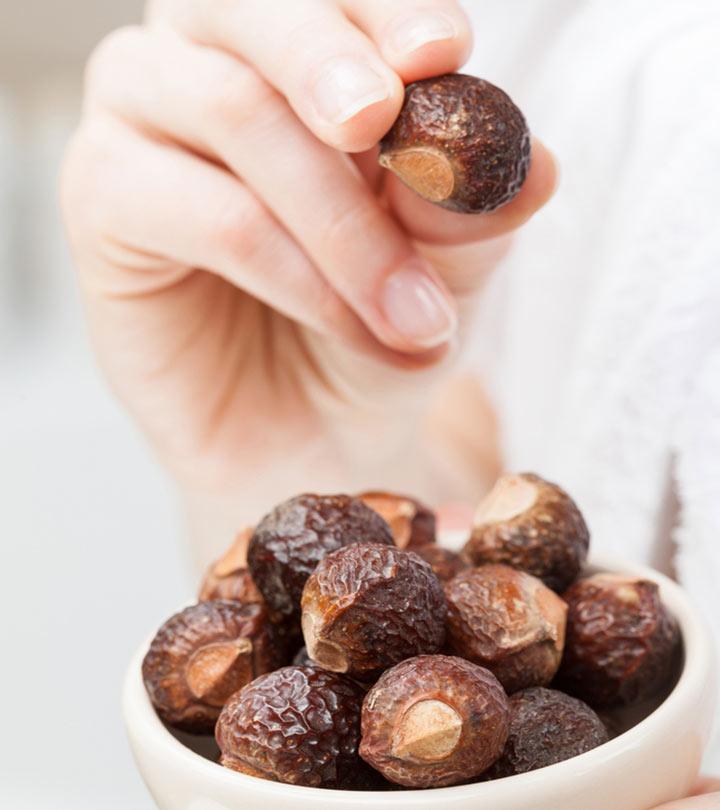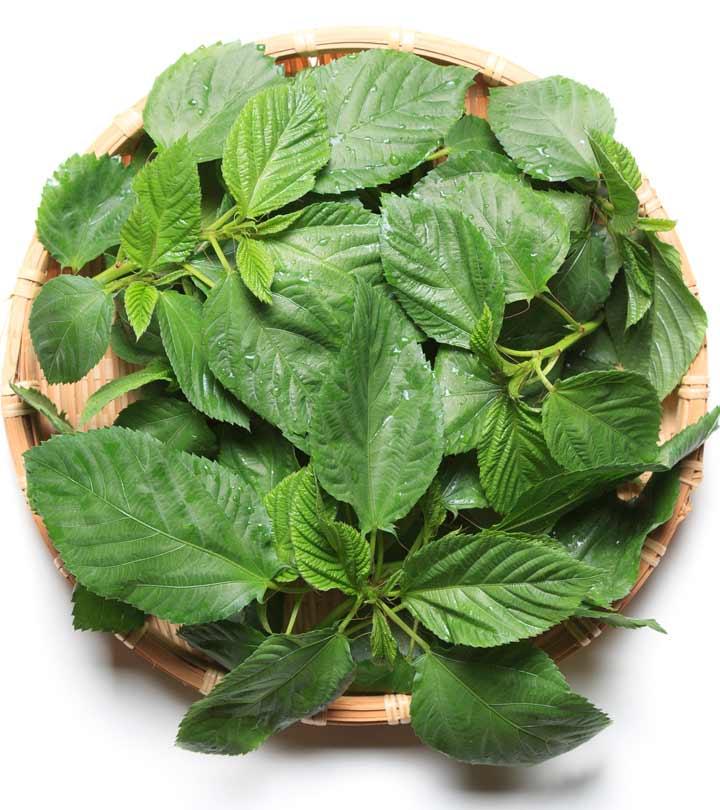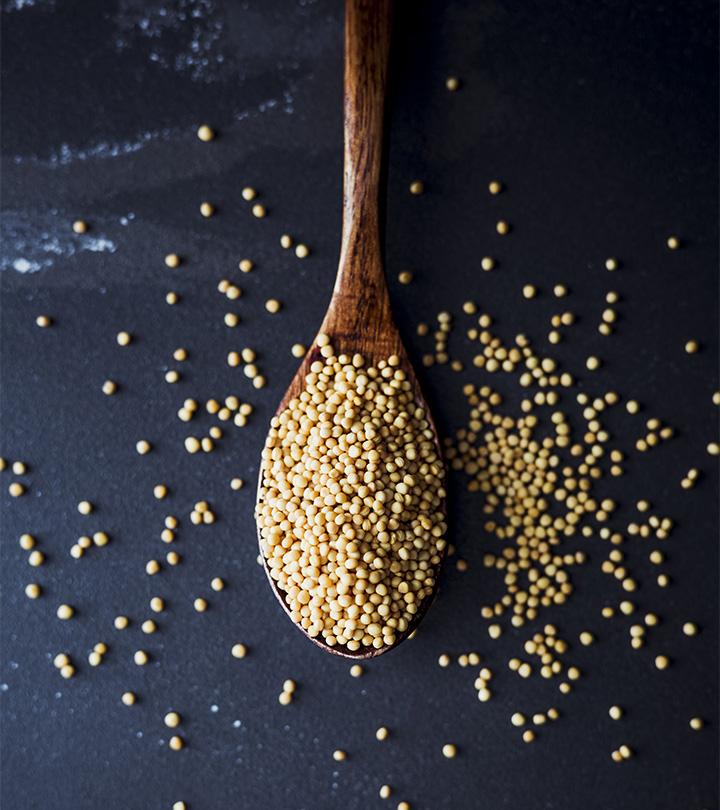Is Black Pepper Bad For You? 7 Possible Side Effects
Understand why going for an extra pinch of this popular spice can cause more harm than good.

Image: i Stock
A few side effects of black pepper might make you think twice before consuming it. Black pepper has been a popular natural remedy for managing several health conditions for centuries. The spice originated in India and is used to enhance the flavor of various dishes and also benefits health in various ways. But taking a look at its side effects you may wonder how is black pepper good for you. However, these effects are related to excessive consumption of black pepper that can upset the stomach and lead to other health issues such as acid reflux (1).
This article examines the side effects of black pepper, its safety, recommended dosage, and any potential drug interactions. Scroll down.
 Know The Flip Side: Black Pepper
Know The Flip Side: Black PepperShort-Term Effects
Burning of throat and stomach, gastric bleeding, upset stomach, and skin rashes.
Long-Term Effects
May lead to excessive toxicity, cause an abortion, and affect male fertility.
Drug Interactions
May lead to over absorption of antihistamines and drugs that boost liver metabolism. Piperine may also inhibit the action of epilepsy drugs.
When To See A Doctor
If you experience excessive bleeding and burning sensation in the stomach during pregnancy.
In This Article
What Are The Side Effects Of Black Pepper?
1. Can Cause Gastrointestinal Issues
Studies show that black pepper may cause gastric mucosal injury (1). A subject administered with black pepper showed symptoms of gastric bleeding. The study concludes by stating that the long-term safety of spices (including black pepper) needs further study.
The piperine in black pepper (which is also one of its most beneficial compounds) can leave a sharp, ‘burning’ aftertaste (2). Though this is just a characteristic of black pepper, consuming it in excess can leave a similar burning sensation in your stomach and cause throat irritation. It may also trigger headache, heartburn, nausea, dizziness, vomiting, and diarrhea. Varun, a blogger, started taking ginger-lemon-salt-black pepper tea thrice a day to increase his stomach acid levels, but had to deal with heartburn as a side effect. He writes, “The heartburn kept on getting worse. It was aggravated so badly that my throat started hurting from burps. When I would be on an empty stomach, I would get a mild but painful burn. If I would eat something, things would be quiet for a while but would get really ugly soon. This went on for three days. I immediately stopped having tea (i).”
2. May Cause Your Body To Over Absorb Certain Drugs
Black pepper promotes the absorption of certain drugs. These include those that boost hepatic metabolism and antihistamines that fight allergies (3), (4). But allergic reactions may occur if you have asthma, which could cause coughing, wheezing, and respiratory issues.
Piperine plays the role of a bioenhancer in drug absorption (5). Though this could be beneficial if a medication is poorly absorbed, it may also lead the over absorption of certain medications to dangerously high levels.
3. May Interact With Certain Drugs
The piperine in black pepper can interact with certain coadministered drugs. Though this may lead to benefits in some cases, it can also cause adverse effects (6). This is because piperine can inhibit or stimulate the activity of certain metabolic enzymes and transporters.
Piperine was also found to inhibit the metabolism of carbamazepine (medication used for epilepsy) (7).
The compound also inhibits the activity of CYP3A, an important body enzyme that plays a role in the removal of toxins in the body (8). This attribute of black pepper might lead to the accumulation of harmful toxins in the body.
Research suggests that the piperine present in black pepper may interact with anticoagulants like warfarin (9). If you are on blood-thinning medications, consult your doctor before taking black pepper.
4. May Affect Pregnancy
The scientific community recommends against the use of black pepper during pregnancy. Its pungency can cause a burning sensation to the body of the fetus (10).
In a female mice study, the piperine in black pepper was found to interfere with several reproductive events (11). It also decreased the mating performance and fertility in the mice.
The piperine in long pepper (a different variant of black pepper) was found to inhibit pregnancy by 80% in studies conducted on female rats. The compound may exhibit contraceptive activity, and research recommends against its use during pregnancy and lactation (12).
Piperine might also inhibit uterine contractions in women (13). This can cause issues during delivery or pregnancy.
 Trivia
Trivia5. May Affect Male Fertility
Piperine may affect male fertility as well. In a rat study, the compound was found to damage sperm (14). It increased the concentration of harmful radicals in the epididymis (a duct in the male reproductive system where sperm is stored).
6. May Cause Skin Redness
There is limited research on this aspect. A study states that cosmoperine, a compound isolated from black pepper, causes skin reddening due to vascular engorgement (when the vascular tissue fills with blood and other fluids). This is also accompanied by a skin tingling sensation (15).
7. Can Make You Sneeze
This may not be a serious side effect, but it is important to be aware of it. The piperine in black pepper is an irritant. Inhaling the smell of black pepper can irritate the nerve endings in the nasal mucous membrane (16). This causes you to sneeze as the nose wants to excrete the irritant. It may also cause eye irritation if it reaches your eyes.
Apart from the above-mentioned side effects, black pepper may also cause skin rash (17).
Black pepper could be a popular and common ingredient in most dishes. But it is important we know when not to have it – as some of its side effects can be severe.
 Fun Fact
Fun FactBefore we wrap up, we would like to discuss the ideal dosage of black pepper. That way, you can be careful in preventing the side effects.
What Is The Safe Dosage Of Black Pepper?
There is no official recommendation on the dosage for piperine. But piperine constitutes 0.4% to 7% of black pepper (18). This means, to take 1 full gram of piperine, you need to consume about six teaspoons of black pepper. This is highly unlikely.
Hence, stick to using black pepper only in normal food amounts.
Infographic: Most Common Side Effects Of Black Pepper
Do you also love adding black pepper to your meal even before you’ve had a bite? Not to scare you, but there are certain side effects of black pepper that you might want to consider before you do that next time. Take a look at the infographic below to find out more! Illustration: StyleCraze Design Team
Black pepper is added to many cuisines to enhance their taste and aroma. It is also known as an effective aid in treating many health conditions. However, one must also consider a few side effects of black pepper, which are generally associated with excess consumption. Black pepper may cause gastrointestinal issues, overabsorption of certain drugs like antihistamines, and interfere with other drugs. It may also affect pregnancy and male fertility and may trigger sneezing and skin redness. Hence, moderate consumption is advised.
Reviewer’s Comments: Black pepper is rich in the compound called piperine, which is responsible for tingling your taste buds and making you sneeze. Black pepper, in amounts usually needed for cooking, can be consumed without the side effects. It is only when it is used in large doses or as supplements in the form of its active compound piperine that one needs to be cautious.
Frequently Asked Questions
Can we use black pepper daily?
Yes, you can have about 1-2 teaspoons of black pepper daily. Moderation is key.
Is black pepper good for the liver?
Yes, in moderate quantities. Black pepper contains piperine that improves liver function (19).
Is black pepper hot or cold?
According to Ayurveda, the spice black pepper is considered to be hot in nature and increases the body’s internal temperature. It increases the Pitta dosha and decreases the Vata and Kapha doshas.
Is black pepper bad for your joints?
Possibly not. A study showed that piperine, an important constituent of black pepper, has anti-inflammatory, antinociceptive, and antiarthritic effects, which can help ease arthritis (18).
Can black pepper cause constipation?
Possibly not. A study showed that piperine has the ability to stimulate the secretion of digestive enzymes and boost the digestion rate in the gastrointestinal tract (19).
Are there any age restrictions or considerations for using black pepper?
Children, the elderly, pregnant and lactating women, along with those with a sensitive gut or facing digestive disorders should limit their intake of black pepper, as the spiciness may irritate their gastrointestinal tract.
Key Takeaways
- Consuming excess black pepper may cause gastric mucosal injury and accumulation of harmful toxins in the body.
- Inhaling black pepper may trigger sneezing, coughing, and skin redness.
- Too much black pepper can cause diarrhea and stomach irritation.
- The piperine in black pepper may negatively affect male fertility and inhibit uterine contractions during labor.

Image: Stable Diffusion/StyleCraze Design Team
Learn about the health benefits and side effects of black pepper. Watch the video to find out how this spice can help improve your health and well-being.
Personal Experience: Source
StyleCraze's articles are interwoven with authentic personal narratives that provide depth and resonance to our content. Below are the sources of the personal accounts referenced in this article.
i. The black pepper explosion…https://mystrugglewithsibo.wordpress.com/2013/06/06/the-black-pepper-explosion/
References
Articles on StyleCraze are backed by verified information from peer-reviewed and academic research papers, reputed organizations, research institutions, and medical associations to ensure accuracy and relevance. Read our editorial policy to learn more.
- “Effect of red pepper and black pepper on the stomach.” The American Journal of Gastroenterology, US National Library of Medicine, National Institutes of Health.
- “Effects of piperine, the pungent component of black pepper, at the human vanilloid receptor (TRPV1)” British Journal of Pharmacology, US National Library of Medicine, National Institutes of Health.
- “The effects of black pepper on the intestinal absorption and hepatic metabolism of drugs.” Expert Opinion on Drug Metabolism & Toxicology, US National Library of Medicine, National Institutes of Health.
- “Effect of piperine, a major component of black pepper, on the intestinal absorption of fexofenadine and its implication on food-drug interaction.” Journal of Food Science, US National Library of Medicine, National Institutes of Health.
- “Role of Piperine as an Effective Bioenhancer in Drug Absorption” Pharmaceutica Analytica Acta.
- “Piperine-mediated drug interactions and formulation strategy for piperine: recent advances and future perspectives” Expert Opinion on Drug Metabolism & Toxicology.
- “Time-dependent inhibition of carbamazepine metabolism by piperine inanti-epileptic treatment” Life Sciences.
- “The effect of piperine on midazolam plasma concentration in healthy volunteers, a research on the CYP3A-involving metabolism” DARU Journal of Pharmaceutical Sciences.
- “Piperine Alters the Pharmacokinetics and Anticoagulation of Warfarin in Rats” ResearchGate
- “Nutritional Constituent of Black Pepper as Medicinal Molecules: A Review” Open Access Scientific Reports.
- “Reproductive toxicity of piperine in Swiss albino mice.” Planta Medica, US National Library of Medicine, National Institutes of Health.
- “Overview for Various Aspects of the Health Benefits of Piper Longum Linn. Fruit” Journal of Acupuncture and Meridian Studies, ScienceDirect.
- “Postcoital antifertility effect of piperine.” Contraception, US National Library of Medicine, National Institutes of Health.
- “Effect of piperine on the epididymis of adult male rats” Asian Journal of Andrology, Wiley Online Library.
- “Biological role of Piper nigrum L. (Black pepper): A review” Asian Pacific Journal of Tropical Biomedicine.
- “Why does pepper make you sneeze?” Everyday Mysteries, The Library of Congress.
- “Contact Dermatitis Due to Black Pepper Extract Used to Treat Vitiligo” Actas Dermo-Sifiliográficas Journal, ResearchGate
- “Anti-inflammatory and antiarthritic effects of piperine in human interleukin 1β-stimulated fibroblast-like synoviocytes and in rat arthritis models” Arthritis Research and Therapy.
- Black pepper and its pungent principle-piperine: a review of diverse physiological effectsCritical Reviews in Food Science and Nutrition.
Read full bio of Neelanjana Singh
Read full bio of Arshiya Syeda
Read full bio of Sindhu Koganti












